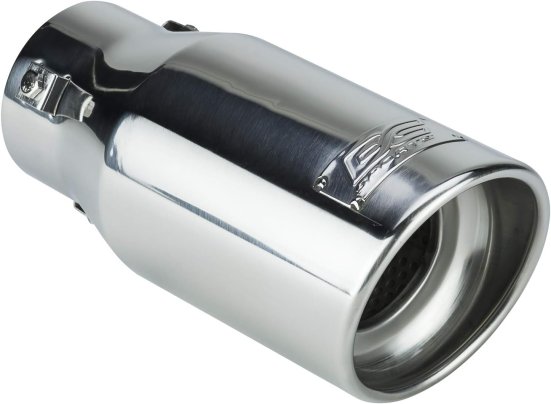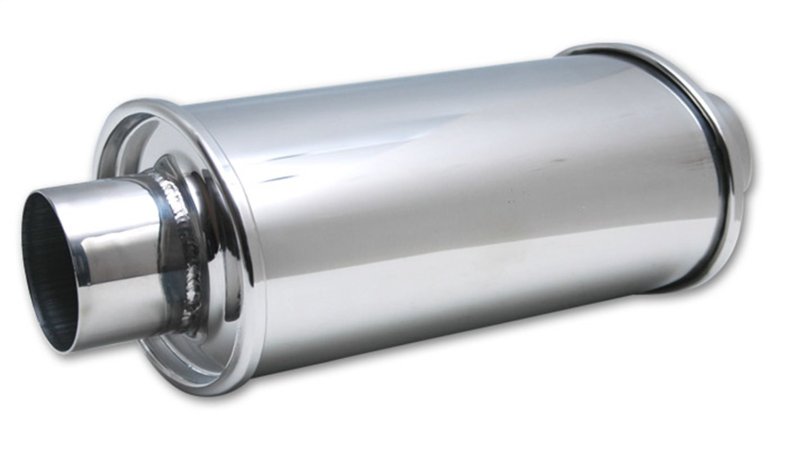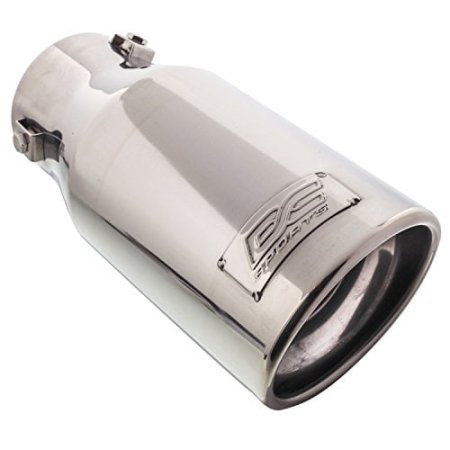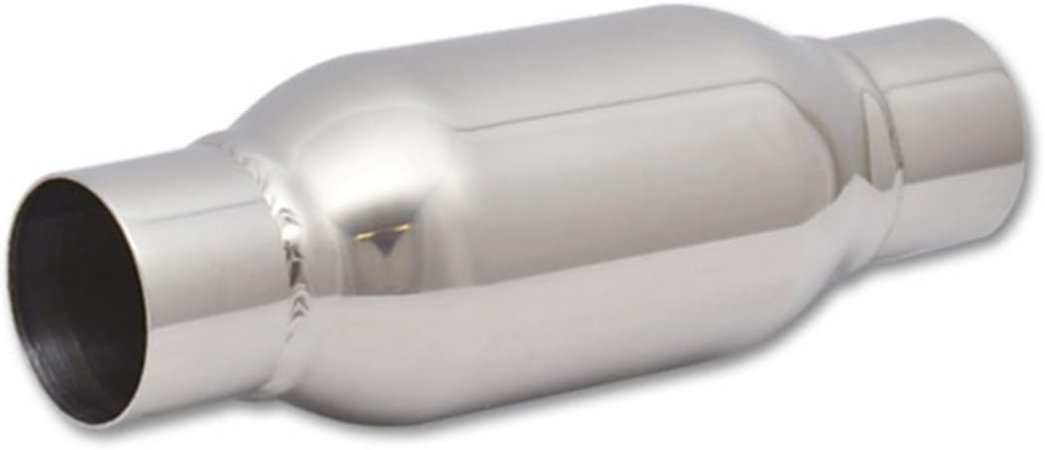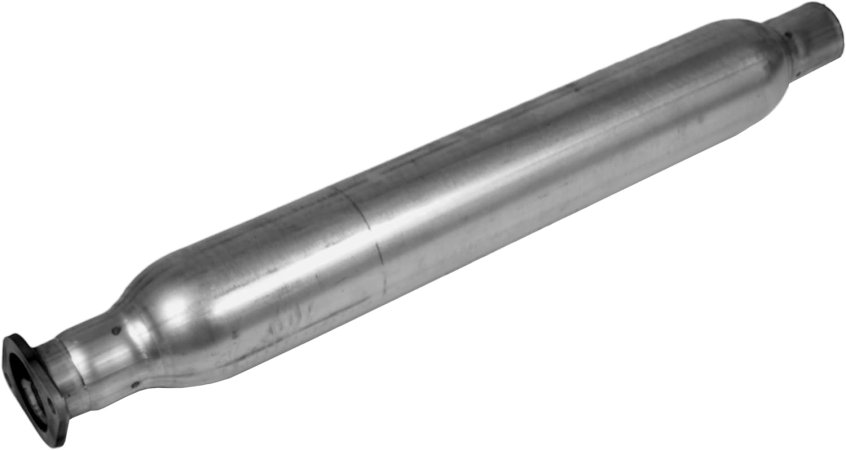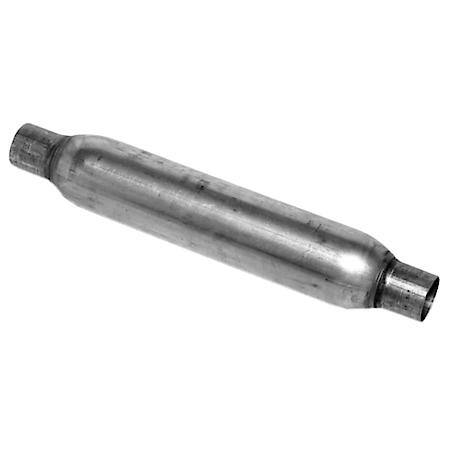We may earn revenue from the products available on this page and participate in affiliate programs. Learn more ›
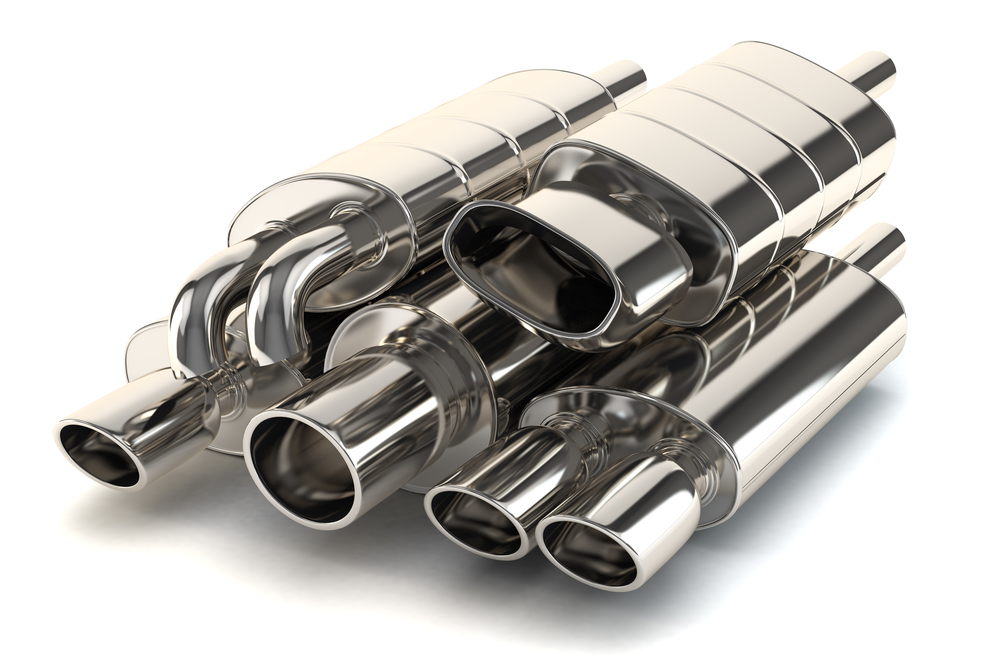
When you think about your car’s emissions and exhaust, you likely think about your muffler. A key component in just about any car, a muffler keeps your vehicle’s exhaust quieted and out of mind. While some drivers want their cars to stand out — some with noisier exhaust and less quieting mufflers, others with specialized and cool aftermarket mufflers — others want as little noise as possible. And if that’s how you feel, you need more than a muffler. You need an exhaust resonator too.
An exhaust resonator is designed to reduce the drone, buzz, or even whine of your exhaust by attaching onto your muffler. These extra parts can quiet your engine dramatically, modulating and changing the sound so it’s more muted and less obvious. While these resonators don’t really alter your emissions, they can make a world of difference if you don’t want your car to sound loud on the road. And we’ve got a list of the best exhaust resonators right here to help you find the perfect fit.
Summary List
- Best Overall: Vibrant Performance 1794 Bottle Style Resonator
- Best Value: DC Sports EX-1013 Resonated Muffler
- Best Universal Fit: Vibrant 1792 Bottle Style Resonator
- Best Factory Sound: Walker 21398 Resonator
- Honorable Mention: Dynomax Race Bullet 23235 Exhaust Resonator
- Honorable Mention: MBRP Universal Resonator
Types of Exhaust Resonators
Chambered or Helmholz
This type of resonator works using multiple size cavities to cancel sound waves from the vehicle engine and produce a cool buzz. The exhaust resonator uses metal plates, also known as baffles, and a single chamber to make the sound coming out of the car engine bearable to your ears. These resonators are designed to cancel sound waves that the standard muffler installed in the engine does not allow to escape. They work differently based on the muffler and engine brands.
Dissipative
This is the most common type of exhaust resonator. These resonators come with fiberglass or metal packing material that absorbs the loud sound from the vehicle engine. The packing material on the resonator is pliable and soft, and thereby absorbs and reduces the sound volume by canceling the sound waves. It comes in two forms: with a louvered core and without a perforated core.
Expansion Chamber
This is the most efficient and simple exhaust resonator available. The resonator comes in a simple tube with varying diameters. A section of the tube has a smaller diameter compared to other parts. When sound waves enter the tube, they bounce and cancel out, thereby reducing the volume, frequency, and pitch. This way, your vehicle exhauster produces sound with a lower tone.
Best Exhaust Resonators: Reviews & Recommendations
Best Overall
Vibrant Performance 1794 Bottle Style Resonator
Best Value
DC Sports EX-1013 Resonated Muffler
Best Universal Fit
Vibrant 1792 Bottle Style Resonator
Best Factory Sound
Walker 21398 Resonator
Honorable Mention
Dynomax Race Bullet 23235 Exhaust Resonator
Honorable Mention
MBRP Universal Resonator
Our Verdict on the Best Exhaust Resonators
Our pick for the best exhaust resonator is the Vibrant 2.5″ Ultra Quiet Resonator. It’s well-made, removes nearly all of your exhaust drone, yet facilitates exhaust flow.
For a more budget-friendly option, consider the DC Sports EX-1013 Resonated Muffler.
Benefits of Exhaust Resonators
- Enhanced engine performance. A quality exhaust resonator improves your car’s engine performance by minimizing friction within the engine. It also reduces the back pressure within the engine, making your car driving smooth. The resonator enables the vehicle to obtain enhanced performance by working together with the catalytic converters in the exhaust system to reduce the loud noise from the engine.
- Offers support to the muffler. The main benefit of having an exhaust resonator installed on your car is that it will support the muffler and harmonize the sound coming out from your vehicle engine. It works in conjunction with the muffler to reduce the noise coming out of the exhaust pipe.
- Noise reduction. The reason for buying a resonator and having it fixed in your car engine is because you want to modulate the loud sound from the engine. An exhaust resonator reduces the loud and annoying sound from the engine when the car is moving at high speeds. This way, you can listen to music comfortably as you drive. It also reduces the noise your vehicle can cause to passengers and other motorists.
- Fewer unpleasant sound frequencies. In addition to quieting the noise coming from your engine overall, an exhaust resonator can also be especially helpful in targeting the most annoying or grating kinds of sounds. A resonator will cancel out frustrating sound frequencies like droning, buzzing, or harsh pitches. It’ll compliment your muffler in a way that both lowers the volume and gets rid of the particular sounds that tend to be most problematic.
Exhaust Resonator Pricing
- Under $30: If you’re looking to add an exhaust resonator to your car without making a huge investment, there are quite a few affordable options available. For less than $30, you can find simple options made out of aluminum or other lighter, less costly materials.
- $30 to $60: Shop within this price range, and you’ll find mid-range options. These exhaust resonators have decent quality, though they can be smaller or less effective depending on the exact product you choose. You’ll discover a wide range of options available to you without spending more than $60.
- $60 and up: The most premium and pricey exhaust resonators total $60 or more — and some can top $100 or even higher. These products are typically high-quality, highly responsive, and nicely effective at minimizing sounds, but they’re also a significant investment.
Key Features
Size
Exhaust resonators come in different diameters and tube lengths. The choice of a suitable size will depend on the type of exhaust system on your vehicle. Always ensure you pick the right size of a resonator that is compatible with the muffler on your car.
Structure
An exhaust resonator connects to the exhaust system muffler through a hollow tube. It has the same structure as that of an acoustic resonator. It reduces the frequency of the engine sound by creating an exhaust note to make them sound more bearable. You can easily enhance the sound from the engine by regulating the exhaust note.
Performance
An exhaust resonator complements your vehicle’s exhaust system. It is connected to an exhaust manifold and the catalytic converter through a tube to provide better performance. The noise from the vehicle’s engine will normally pass through the resonating chamber. While inside the chamber, the sound wave interference occurs to reduce the volume and pitch of the sound that comes out of the exhaust.
Appearance
Like a muffler, an exhaust resonator can stand out on your car — if you’d like it to, that is. With different designs ranging from sleek to simple to extravagant, you can find resonators that blend in or catch other drivers’ attention on the road. While most resonators are pretty straightforward, you can decide just what kind of appearance you’d like while you’re shopping for this part. If you’d like to have a less noticeable resonator, look for one made from a metal that’ll match your current muffler or your car’s exterior metals.
Durability
An exhaust resonator, like any other part of your vehicle that’s close to the ground or road, is guaranteed to see a whole lot of wear and tear. As you drive — or even while you’re parked — it’s going to come into contact with dirt, mud, grime, and even flying debris. It’ll see wear from weather and get exposed to all kinds of outdoor elements. You’ll want to make sure you choose an engine resonator that’s tough enough to last. Heavy-duty resonators are the best choice, as they can be more durable and better designed to survive dirt, debris, and more.
Other considerations
- Material. The material used on the exhaust resonator plays some role in its longevity and overall performance. If the material used in the construction is long-lasting, then the resonator is worth your investment. The material should be an excellent sound absorbent to restrict sound that comes out of the exhaust system. Also, you can opt for stainless steel resonators because they last longer and are less resistant to corrosion and rust.
- Installation Kit. Some exhaust resonators come with a full installation kit, including all the parts that you need to have it fixed. When buying an exhaust resonator, you want to ensure it has the brackets, flanges, and other tools that you need to fix it. Brackets will exempt you from having to look for compatible attachments for the resonator assembly.
- Price. Price is a crucial indicator of the quality of a product. Therefore, when shopping for an exhaust resonator, you want to go for one that is affordable and worth your investment. When choosing an exhaust resonator based on its price, check for a warranty or some other assurance of quality.
Tips
- An exhaust resonator is not the same as a muffler. It is installed before the muffler and is sometimes known as a pre-muffler. The exhaust resonator and muffler work together, but one can’t be substituted for the other.
- A resonator exhaust tip produces more noise than a regular exhaust tip. If you don’t want to draw too much attention to yourself, it’s better to use a regular tip.
- Some people use a pipe in place of an exhaust resonator; however, this can affect the backpressure, which can decrease efficiency and cause higher fuel consumption.
FAQs
That depends on the product. Some are better quality and will last longer. Cheaper ones will break down more quickly and will discolor or rust over time. A good exhaust resonator should last for many years.
An exhaust resonator is attached to your car’s engine, so it’s exposed to a lot of vibration. It also endures a lot of heat and encounters dirt, mud, and other road debris on a regular basis.

